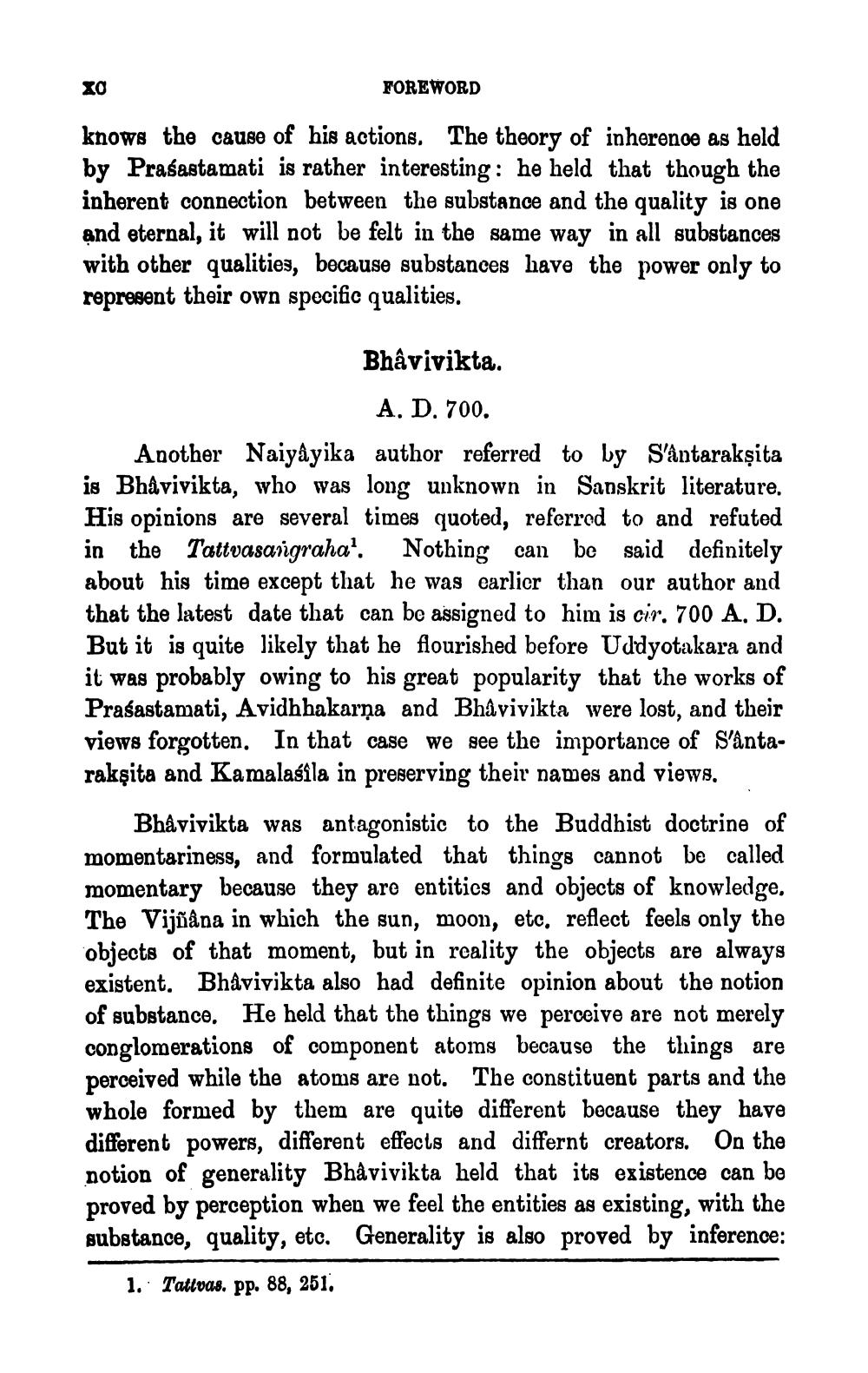________________
x0
FOREWORD
knows the cause of his actions. The theory of inherence as held by Praśastamati is rather interesting: he held that though the inherent connection between the substance and the quality is one and eternal, it will not be felt in the same way in all substances with other qualities, because substances have the power only to represent their own specific qualities.
Bhâvivikta.
A. D. 700. Another Naiyâyika author referred to by S'ântarakṣita is Bhåvivikta, who was long unknown in Sanskrit literature. His opinions are several times quoted, referred to and refuted in the Tattvasangraha'. Nothing can be said definitely about his time except that he was earlier than our author and that the latest date that can be assigned to him is cir. 700 A. D. But it is quite likely that he flourished before Uddyotakara and it was probably owing to his great popularity that the works of Prasastamati, Avidhhakarņa and Bhâvivikta were lost, and their views forgotten. In that case we see the importance of S'ântarakṣita and Kamalasila in preserving their names and views
Bhåvivikta was antagonistic to the Buddhist doctrine of momentariness, and formulated that things cannot be called momentary because they are entities and objects of knowledge. The Vijñâna in which the sun, moon, etc. reflect feels only the objects of that moment, but in reality the objects are always existent. Bhåvivikta also had definite opinion about the notion of substance. He held that the things we perceive are not merely conglomerations of component atoms because the things are perceived while the atoms are not. The constituent parts and the whole formed by them are quite different because they have different powers, different effects and differnt creators. On the notion of generality Bhâvivikta held that its existence can be proved by perception when we feel the entities as existing, with the substance, quality, etc. Generality is also proved by inference:
1. Tativas. pp. 88, 251.




